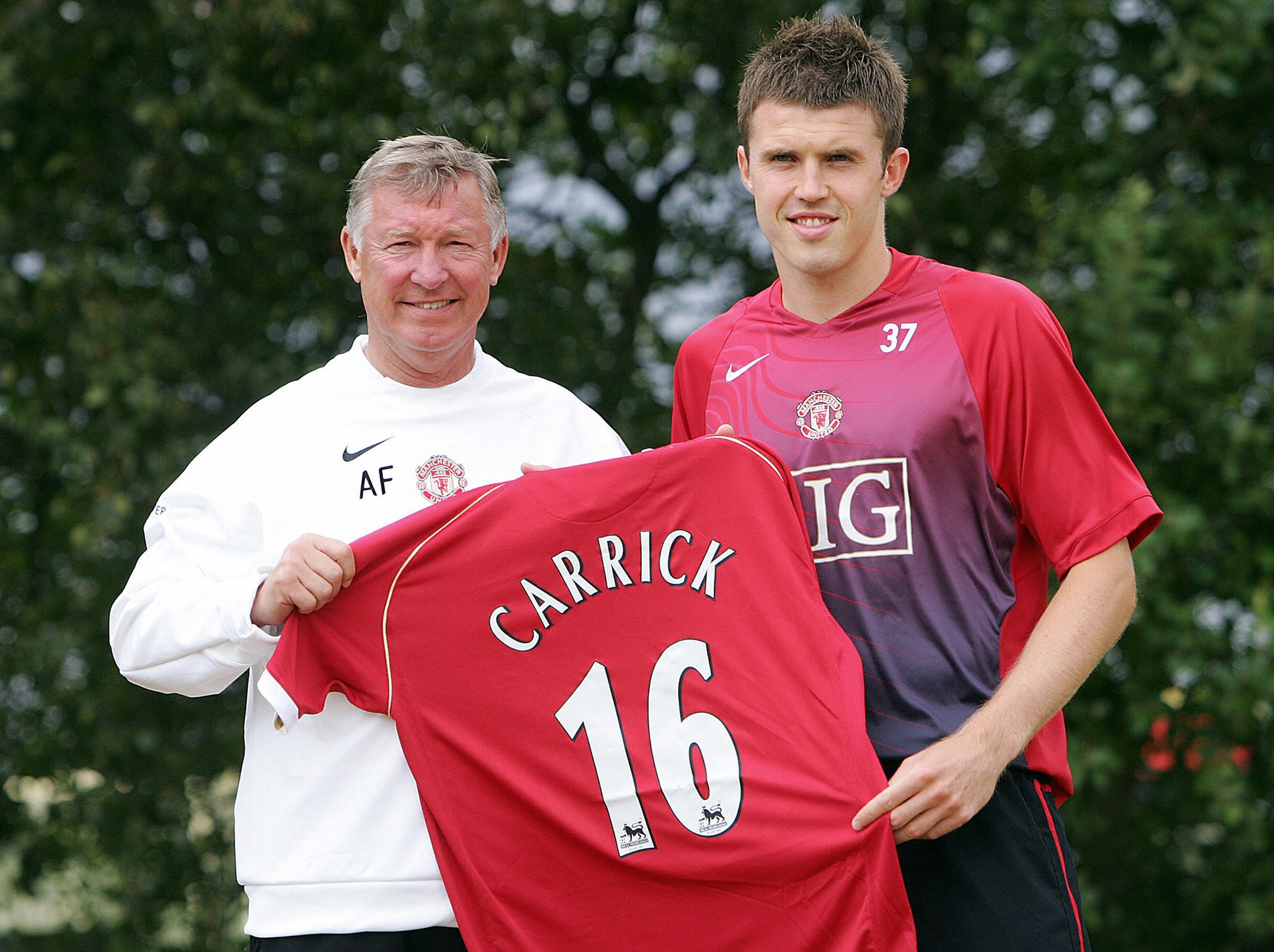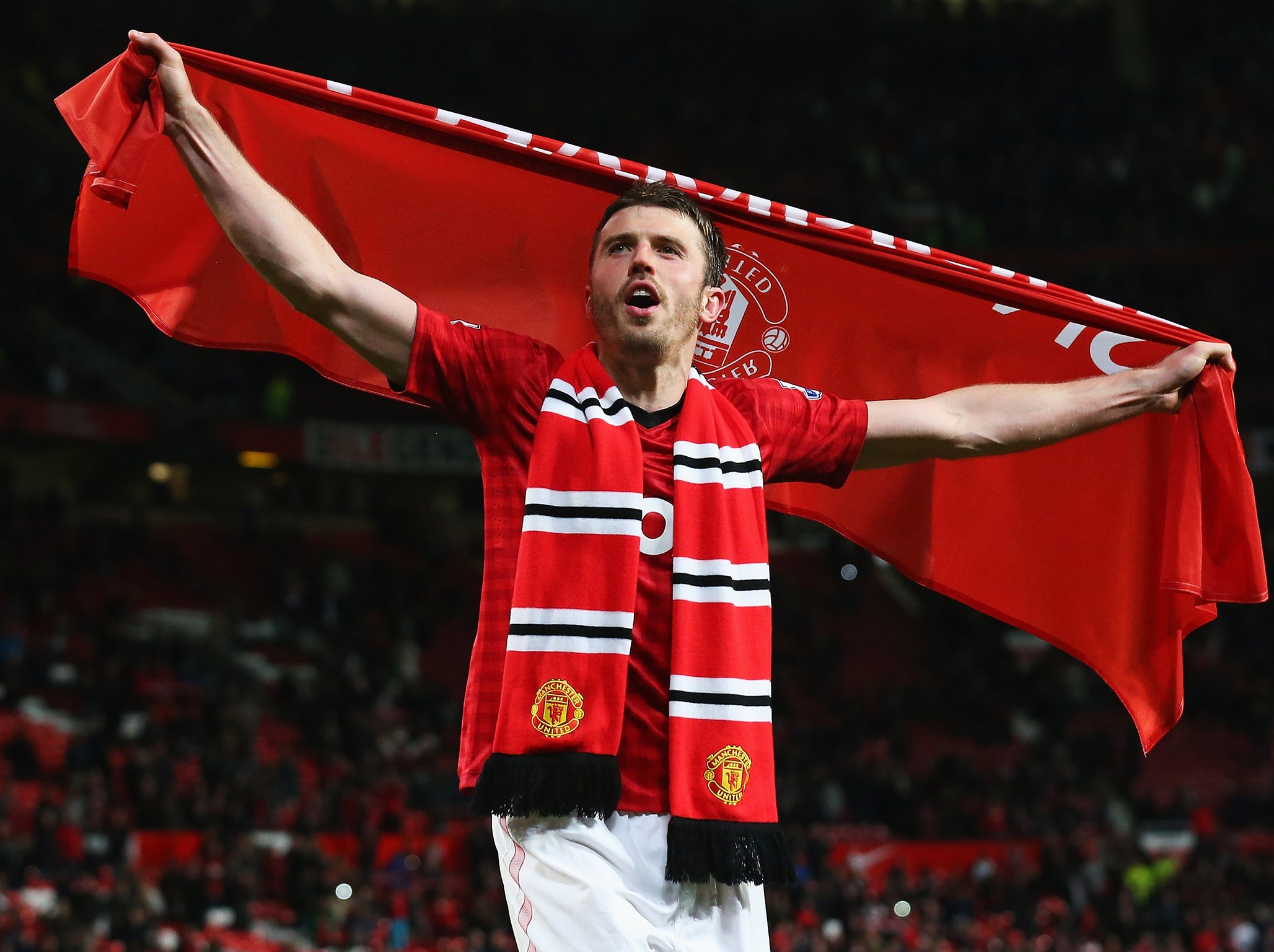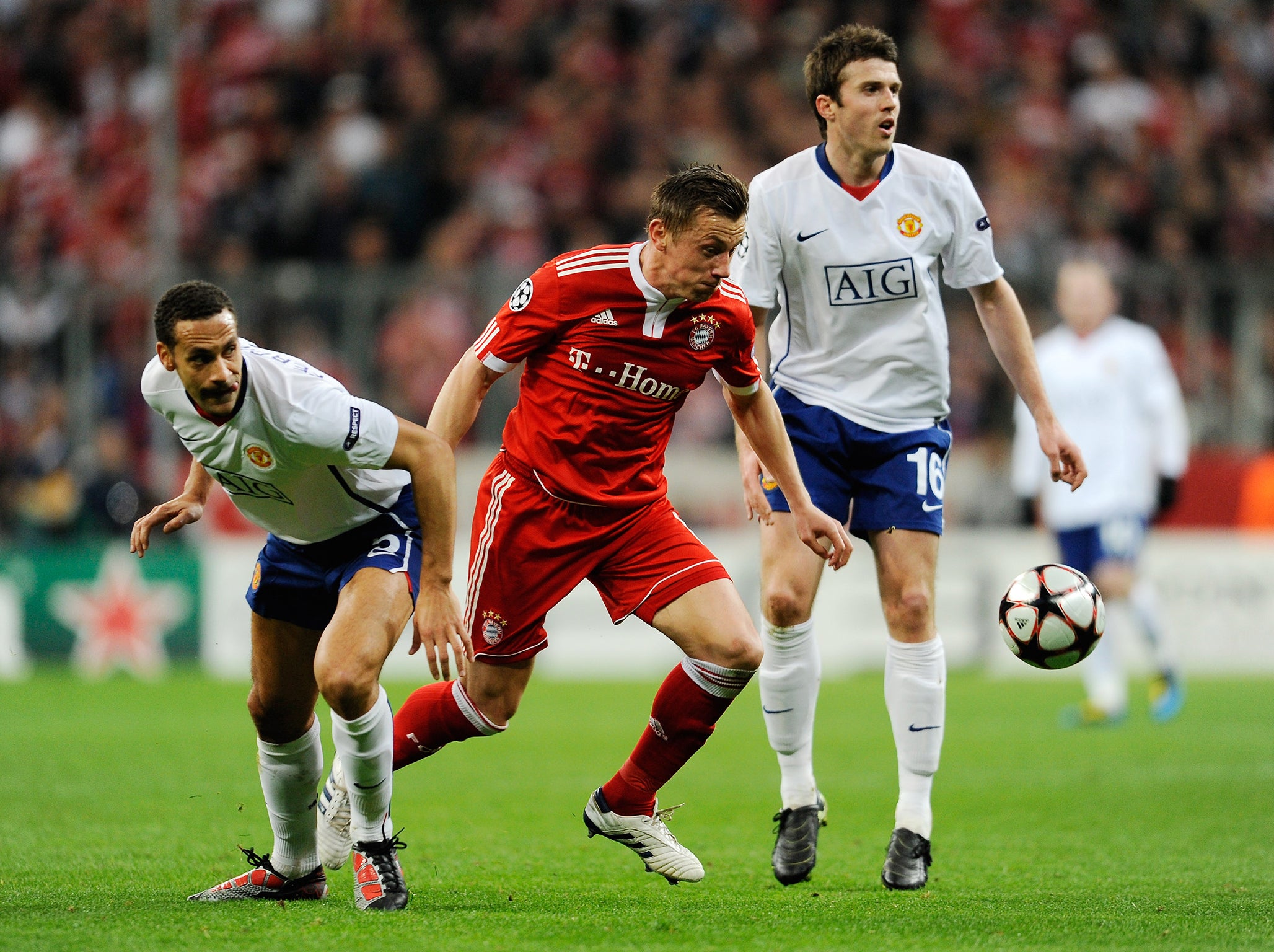Michael Carrick: The reluctant Manchester United great whose influence is still sorely missed
For someone now seen as a steady guardian of United’s greatest virtues, Carrick has a surprising admission. Miguel Delaney speaks to the former England midfielder


Your support helps us to tell the story
From reproductive rights to climate change to Big Tech, The Independent is on the ground when the story is developing. Whether it's investigating the financials of Elon Musk's pro-Trump PAC or producing our latest documentary, 'The A Word', which shines a light on the American women fighting for reproductive rights, we know how important it is to parse out the facts from the messaging.
At such a critical moment in US history, we need reporters on the ground. Your donation allows us to keep sending journalists to speak to both sides of the story.
The Independent is trusted by Americans across the entire political spectrum. And unlike many other quality news outlets, we choose not to lock Americans out of our reporting and analysis with paywalls. We believe quality journalism should be available to everyone, paid for by those who can afford it.
Your support makes all the difference.For someone now seen as a steady guardian of Manchester United’s greatest virtues, and a figure so rarely fazed, Michael Carrick makes a surprising admission. The recently retired midfielder is asked when he noticed he was the new Ryan Giggs or Paul Scholes of the squad, one of the senior players responsible for setting the standards.
“I don’t know if I ever felt that,” Carrick says. “I was never comfortable at United, really.
“When you’re in it, you don’t really feel like that… you don’t actually really enjoy it that much when you’re in it, which is a crazy thing, but it’s because you’re so desperate for that next thing, striving for the next level. You don’t really enjoy the journey that much. It’s when you’re finished and you look back you enjoy it.”
Speaking to The Independent in a wide-ranging interview for his new autobiography ‘Between the Lines’, Carrick speaks in a way that offers a bit more context to one of the most eye-opening revelations from that book: that it took him a long time to get over the pain of the 2009 Champions League final defeat to Barcelona.
That Pep Guardiola side is now seen as one of the greatest in history but, even after reflecting so much for the autobiography, Carrick still can’t quite put his finger on why he was so crushed. “Depression” is the word he uses.
“It’s a tough one to work out. I’m kind of guessing really but… I was trying to stay at that level for so long. We’d got to the semi-final in 2007, then won it, then got to the final again and over that time it was 25 games unbeaten, which was probably why it hit hard in the final because we felt we were the best in Europe at that time, but we didn’t perform to our potential and that’s what really god to me, why now?
“The biggest stage, I didn’t play well, the team didn’t play well, there was no sign of that coming. For the Champions League final to be one of our worst games…
“In 2011, they were the best team I’ve seen. Then, 2009 was the start of that cycle and I think that they weren’t at that level yet. We were better in 2009 than in 2011. I thought we let ourselves down. It was there for us to win.”
He then offers a comment of the kind that has now become common among Manchester United players from the Sir Alex Ferguson era.
“It’s always been the ones that got away that stick in your memory. You use them for motivation. The ones you win are brilliant and you enjoy them, and then you move on.
“That first year at United we won the league and lost the FA Cup [to Chelsea] a couple of weeks later, I would have thought winning the league would have been the ultimate and I would have enjoyed it that summer but the overriding feeling was losing the FA Cup final and the league almost didn’t matter. I used that for the next year, that kind of motivation.”
These are exactly the kind of words that so regularly – and so instructively – came from the man that Carrick directly replaced at Old Trafford: Roy Keane. It feels a quirk of history now that, when signed for £18.5m as United’s sole purchase in the summer of 2006, the English midfielder was merely seen as another sign of the club’s meek decline under a supposedly fading Ferguson. Carrick wasn’t viewed as having the force of personality to push United back to the levels required, and something the team seemed to badly require.

For his part, he references in the book how he can remember interviews from his former youth coach Frank Lampard senior and even the man who was placing so much trust in him – Ferguson – about how he was “a shy boy who needs to be shaken at times”.
Carrick freely admits United changed him.
“Oh, 100%. I thought I kind of had an understanding of the level, what it took to be at the top. When I came in at United, I’d seen what the manager set, how the players lived their lives, how they trained, how they lived with the expectation and all sorts, playing three games a week at that level. And that is when I thought ‘woah – this is different, this is something else.’
So I kind of set about thinking ‘this is what I want to be, I want to be like them… what do I have to do to be like them, to be as good as them?’. Not that I could always be as good as them of course, because we’re talking about Ryan Giggs, Paul Scholes, players from another planet. But just striving to be as good as I could possibly be and that motivated me and opened my eyes to what else is out there, what it’s like to be to be the best.”

If United fundamentally changed Carrick, though, the reality is Carrick also changed United. It has almost been understated in Ferguson’s long reign at the club, but that signing was one of the most important in all his time there. Far from a soft signing to pad the midfield, as many expected at the time, it was the final piece required to complete Ferguson’s last great team; to turn them into a truly great continental team.
Carrick’s passing ability, complementing Scholes, turned them into a polished and controlled team. Even allowing for the financial transformation of the Premier League around then, it doesn’t feel coincidental that his arrival also brought Ferguson’s most successful spell in Europe: one Champions League victory, and two other final appearances.
Carrick actually symbolised a new style, ironically making his succession of Keane all the more appropriate. He wasn’t the single part replacing the Irish great. He was a key part in the reshaping of the team.
It is all the more surprising then that Ferguson never actually explained this role to Carrick, but the former midfielder feels this was part of the manager’s genius: that implicit understanding.

“There was certainly never a conversation to say ‘this is what I expect of you’ or ‘this is what I want from you’. It was just go and do the right thing, ‘go and work hard, go and enjoy yourself, go and express yourself, really’.
“It was like ‘I’ve brought you in, I know what you’re good at, go on, go and play’ and then along the way he’d keep chipping away at you with little bits about ‘try this, do this, try this’ but not very often, he just trusted you to go and play, made you feel 10 foot tall, it was never ‘this is how we play at United’, you kind of just watched and learned, picked it up, played my own game and just kind of adapted as it went on.
“The only information we would have got in those days was it had to be forward. You’ve got to pass forward. The style of play was pass forward, run forward, penetration. That was the theme the boss wanted in his teams and then it was up to everyone individually to find a way how to do that.
“How it worked for me was different to Scholesie, we’re slightly different players, to Giggsy, who was a bit more of a dribbler but there was always that kind of forward thinking. Scholesy was a bit more one-twos, play it past him and running around, trying to penetrate that way. I was more passing through the lines, Giggsy was a dribbler, but it was the same principle, the same theory, but it was never shown, it was never coached, it was just that was the theme of it, ‘I trust you to go and do it.’”

That trust, and Ferguson’s psychological conditioning of the team, leads to one of the more fascinating little insights in Carrick’s book about how great teams are built. He speaks of his deep understanding with Rio Ferdinand, and how they’d effectively execute complicated team movements based on single commands.
“It’s a difficult one to describe, but yeah Rio, he used to speak all the time, non-stop, non-stop, non-stop. I have that total trust in him, so if he said to me ‘go right’, I’d go right, I wouldn’t even think twice, I’d just do it. It comes down to pure trust. He obviously knew that he could shout me to do that, and I’d do it for him. It wasn’t like he’s taking the piss out of me because he wanted me to do his running. It was an understanding, I’ll make his job easier, but that’s making my job easier, and as a team we’re going to be better for it.”
That 2006-09 United had these relationships all over the pitch. Carrick had another with Scholes in midfield.
“It was understanding when he wanted the ball at the right time, rather than just giving him the ball. When he wanted it, what angle, all that kind of stuff. That just comes through understanding from playing with each other obviously.
“That’s part of the team. There’s coaching to it, to an extent and there’s being drilled to do certain things, but it comes down to the element of relationships on the pitch, partnerships, playing in a unit, whatever it is, just having that understanding, it’s massive, and I found the better players tend to have that understanding with each other, and then it brings out the best in each other.”
So, sure, Carrick might not ever have felt comfortable at United – but that very absence of a comfort zone at the club was what made them so commanding.
And there can be little doubt he looked so comfortable on the pitch.
Join our commenting forum
Join thought-provoking conversations, follow other Independent readers and see their replies
Comments